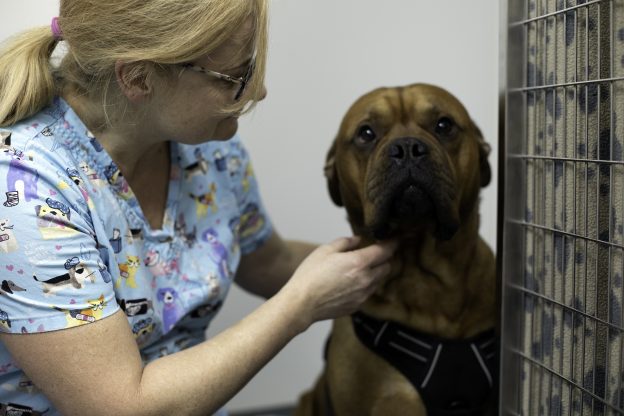Whether you’re just out of school and looking to kick-start a career with animals, have always wanted to work with animals and looking for a career change, or unemployed and looking to get back into the industry, veterinary care could be the perfect career for you!
Why train in veterinary care?
Veterinary Care Support staff are crucial members of today’s modern veterinary team, working alongside veterinary surgeons and veterinary nurses to provide vital nursing care to small animal patients. The role is varied and every day you will be involved with:
- Exercising, grooming and feeding hospitalised animals (inpatients)
- Monitoring and providing supportive care to inpatients
- Preparing theatre and relevant equipment
- Cleaning and preparing accommodation for animals
- Restraining animals for treatment
- Reception duties, including advising clients on preventative health care e.g. flea treatment
- Record keeping
Although hours can be long and the work physically and emotionally demanding, the rewards that come from being part of a team that work together to nurse animals back to health, make the job extremely worthwhile and fulfilling!
What’s more – career progression is excellent!
Many VCAs go on to complete additional qualifications such as the Level 2 Certificate in Assisting Veterinary Surgeons in the Monitoring of Animal Patients programme, or even go onto train as a veterinary nurse by undertaking the Level 3 Diploma in Veterinary Nursing, as an apprenticeship or standalone qualification.
Start your training today on our NEW Veterinary Care Support Apprenticeship programme!
If you’re set on training to become a veterinary care support professional, we are delighted to announce we now offer a *NEW* Veterinary Care Support (VCS) apprenticeship programme!
This apprenticeship will provide a tailored learning experience allowing you to develop the skills, knowledge and experience needed to thrive as a VCA by undertaking on-the-job training in a veterinary practice. You will learn skills such as:
- common medical, behavioural and surgical care requirements
- the principles of care and related procedures and how to deal with these
- clinical parameters of common species seen in a veterinary environment
- legislation and limitations in relation to role and responsibilities in a clinical environment
- legislation in relation to the dispensing and administering of medication
- end of life care processes, procedures and support
- how to deal with emotional customers/clients
- exercise/socialise animals and provide appropriate enrichment relevant to their specific needs
- provide food and water to animals and monitor intake
- maintain, update and reference correct records in accordance with current legislation
The new apprenticeship is available now. To find out more about the new programme visit our website or call us on 01480 422060!

